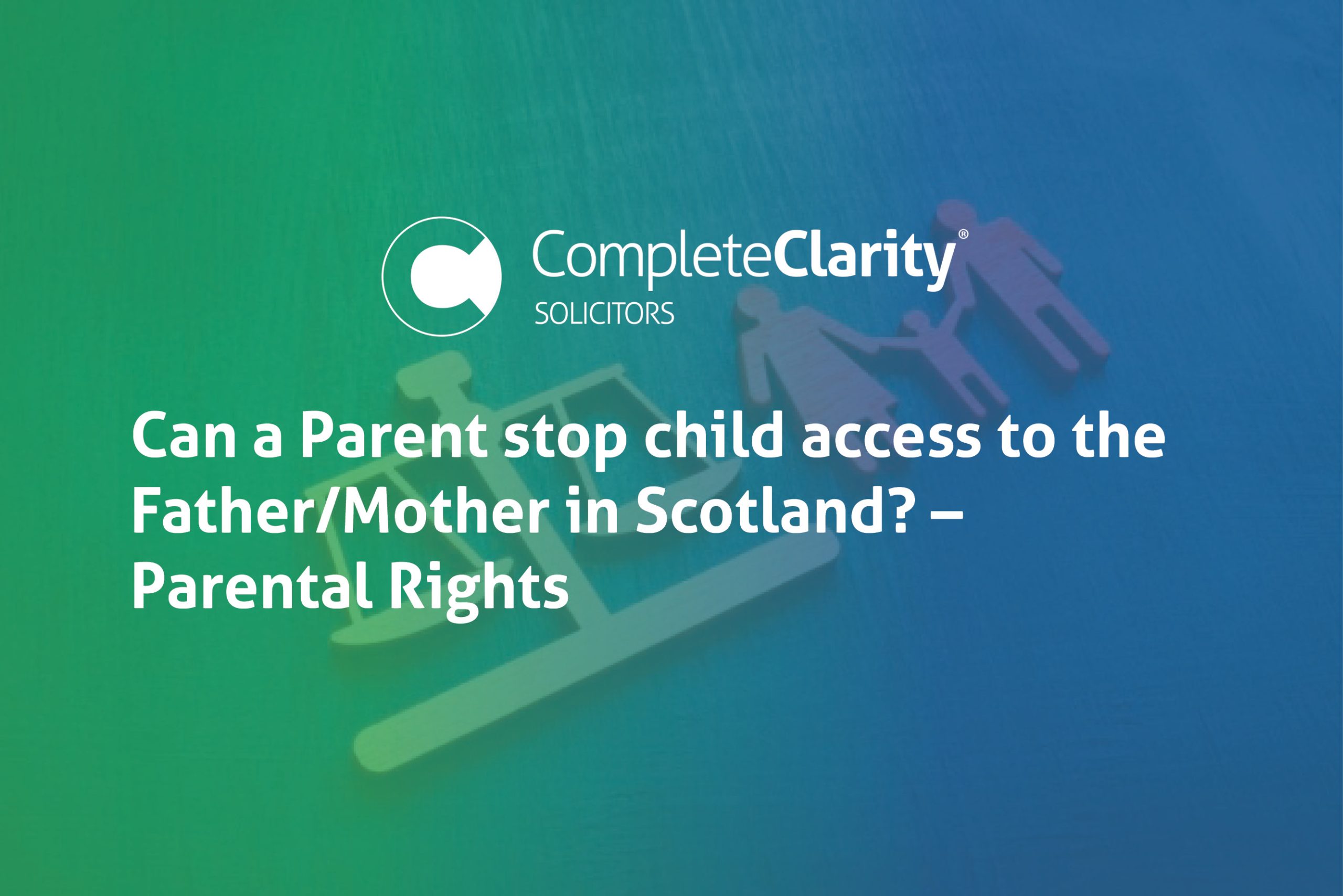In this blog we will dive into the areas of laws for child access and if a parent can refuse access.
Legal Framework Governing Child Access in Scotland
At the core of Scotland’s approach to child access is the Children (Scotland) Act 1995, along with subsequent amendments and the Family Law (Scotland) Act 2006. These laws underscore the belief that children should have the opportunity to maintain a relationship with both parents, provided it serves their best interests.
The legislation doesn’t favour mothers over fathers or vice versa. Instead, it emphasizes the child’s welfare as the paramount consideration in any access decision.
When Can a Mother Legally Refuse Access?
There are specific circumstances under which a mother might restrict a father’s access to their child. These typically relate to concerns over the child’s safety and welfare. Examples include:
- Evidence of abuse or neglect: If there’s credible evidence that the child’s well-being is at risk due to abuse (physical, emotional, or sexual) or neglect by the father.
- Substance misuse: Situations where the father’s substance abuse could endanger the child.
- Domestic violence: If the father has a history of domestic violence, access might be restricted to protect both the child and the mother.
In such cases, the refusal of access isn’t an arbitrary decision but one that ideally should be supported by legal orders or advice from child welfare experts.
Father’s Rights and the Legal Landscape
Fathers in Scotland have the right to apply for contact with their children through the court. If a father’s name is on the birth certificate (for children born after May 1, 2006), he automatically has parental responsibilities and rights, including the right to have a say in important decisions affecting the child’s life and the right to apply for contact.
If a mother refuses access without a court order, the father can apply to the court for a contact order under the Children (Scotland) Act 1995. The court will consider various factors, with the child’s welfare being the most important.
The Role of Mediation in Resolving Disputes
Before heading to court, parents are encouraged to try mediation. This process involves a neutral third party helping them reach an access agreement. Mediation can be a less adversarial and more cost-effective way to resolve disputes, with the child’s best interests remaining the focal point.
Practical Advice for Parents
If you’re navigating an access dispute, consider the following steps:
- Seek legal advice: Understanding your rights and responsibilities is crucial. Our highly qualified family law solicitors can provide guidance tailored to your situation.
- Consider mediation: It can offer a less confrontational path to resolving access issues.
- Document everything: Keep detailed records of any interactions, agreements, or incidents that may be relevant to your case.
- Focus on the child’s best interests: Ultimately, decisions should prioritize the welfare and happiness of the child.
In Conclusion
Navigating child access laws in Scotland requires a careful balance of legal rights, emotional intelligence, and above all, a focus on the child’s best interests. Whether you’re a mother contemplating refusing access or a father seeking to maintain a relationship with your child, it’s essential to approach the situation with empathy, understanding, and legal guidance. By prioritising the welfare of the child and seeking amicable solutions, parents can navigate these challenging waters with dignity and respect for all involved.







